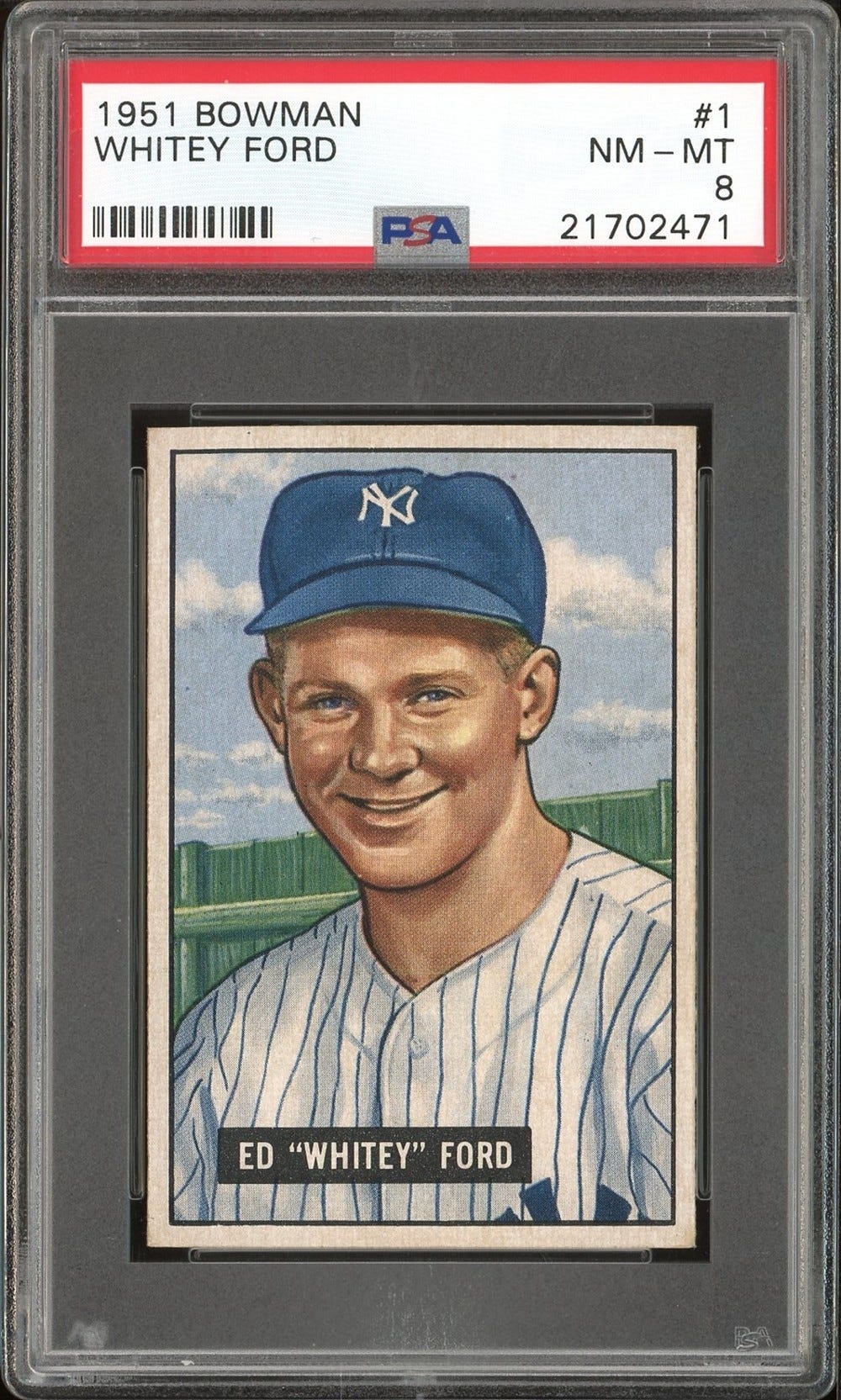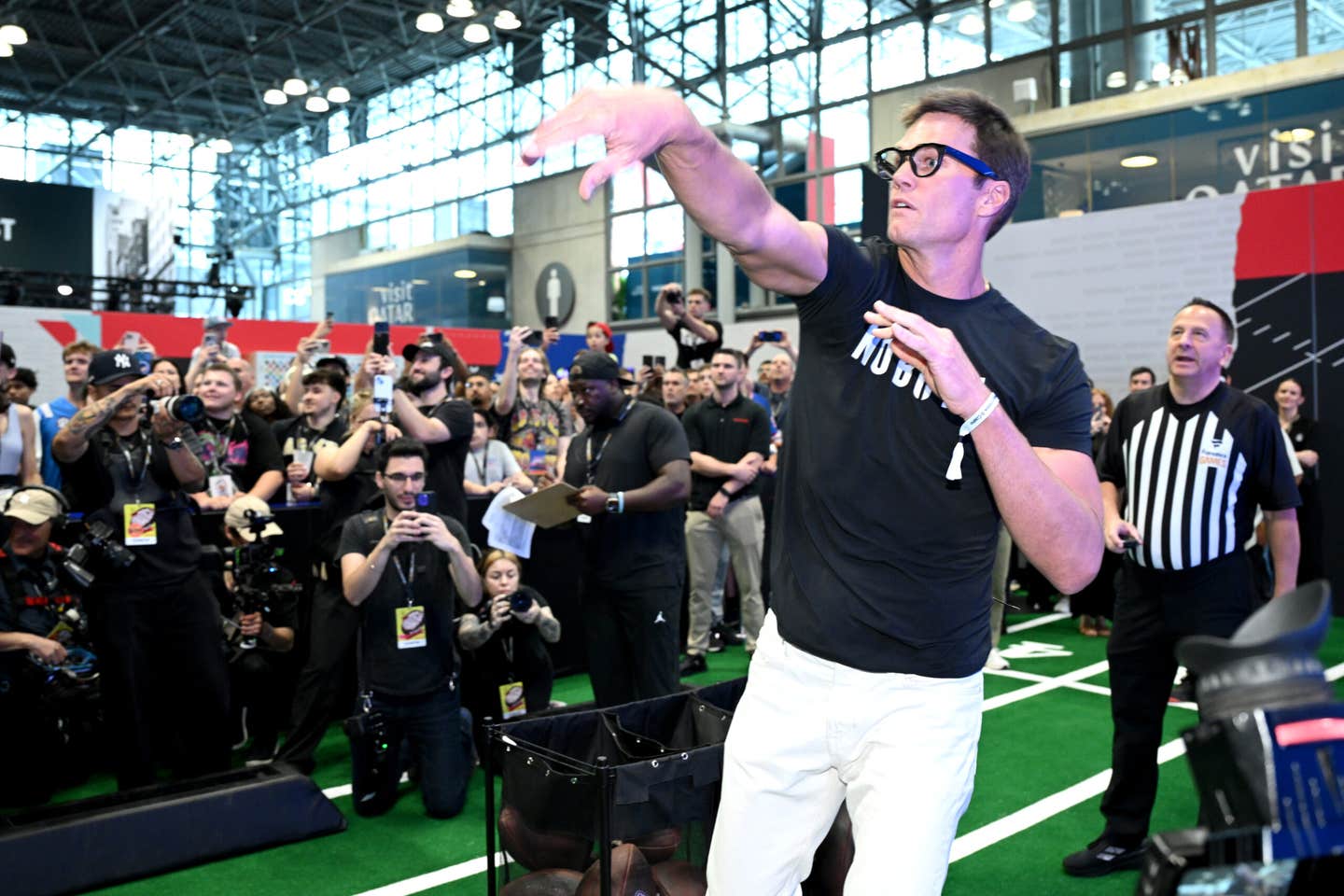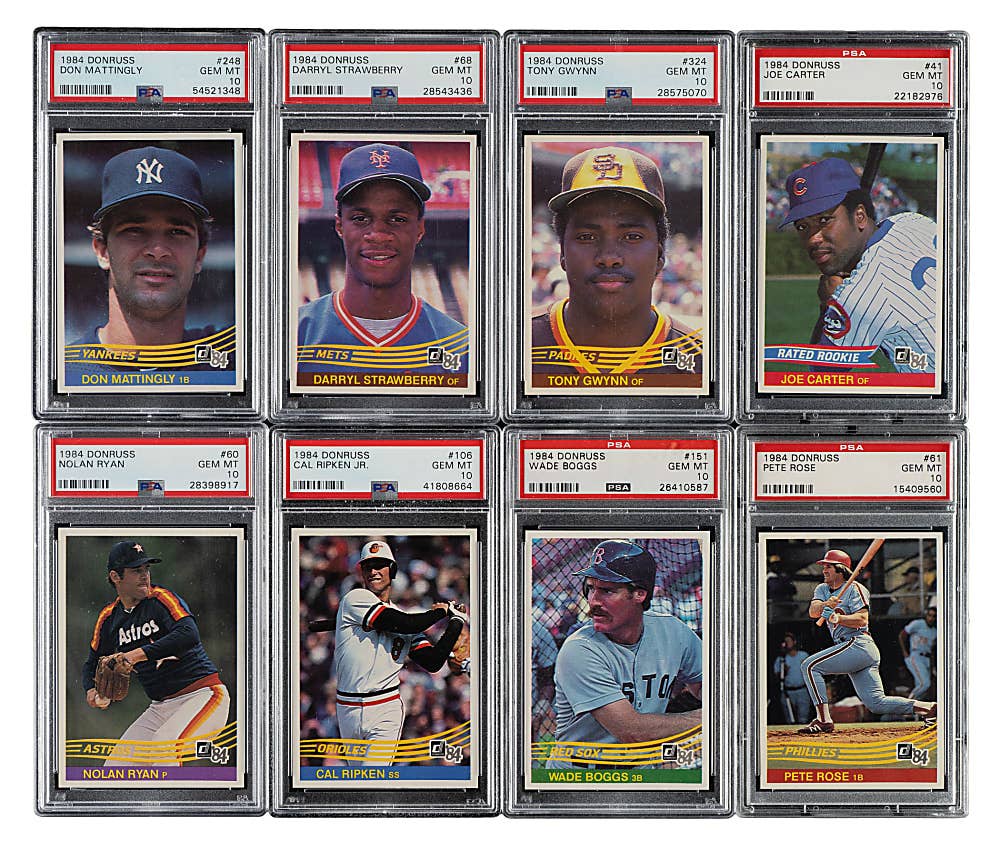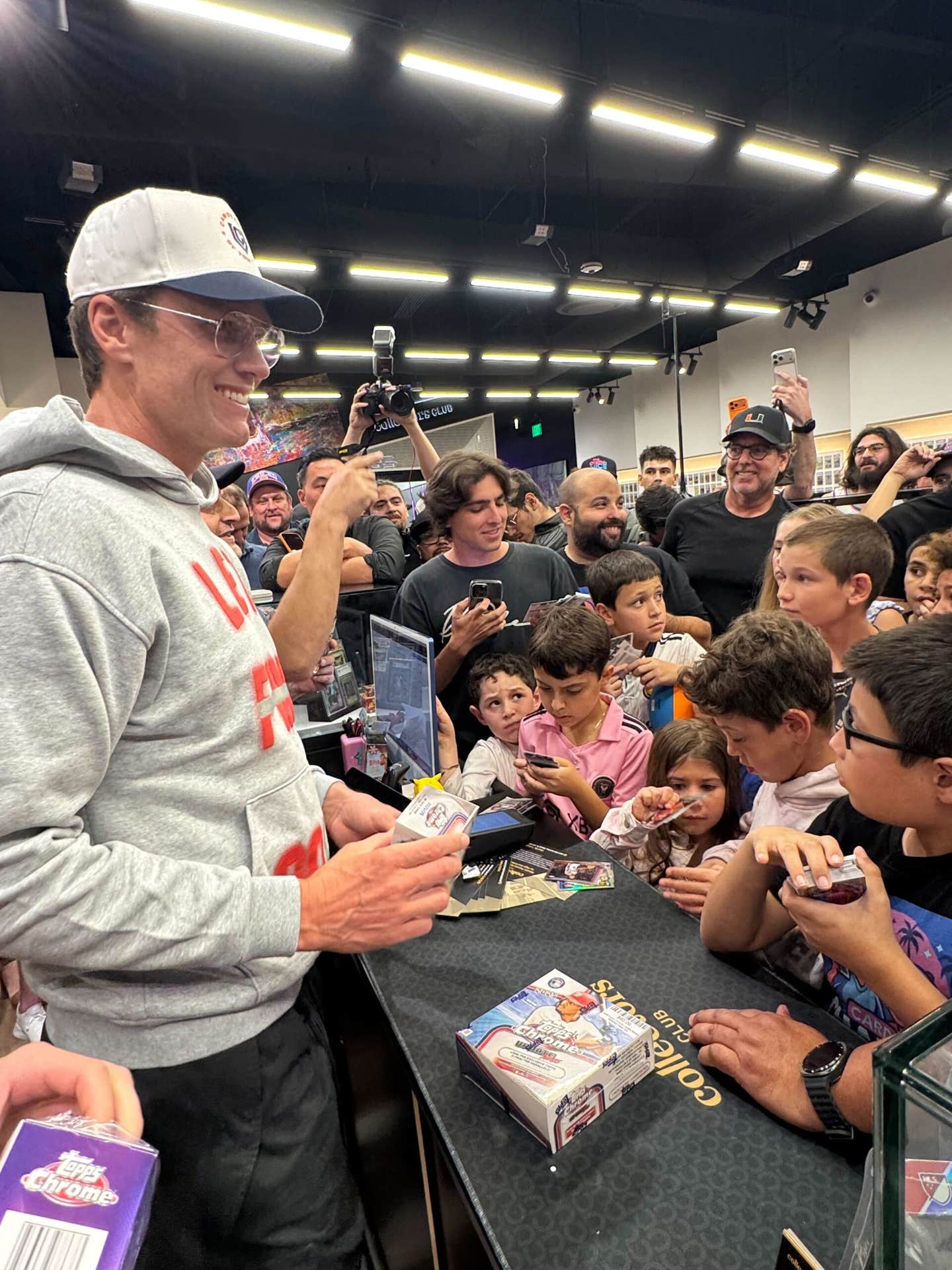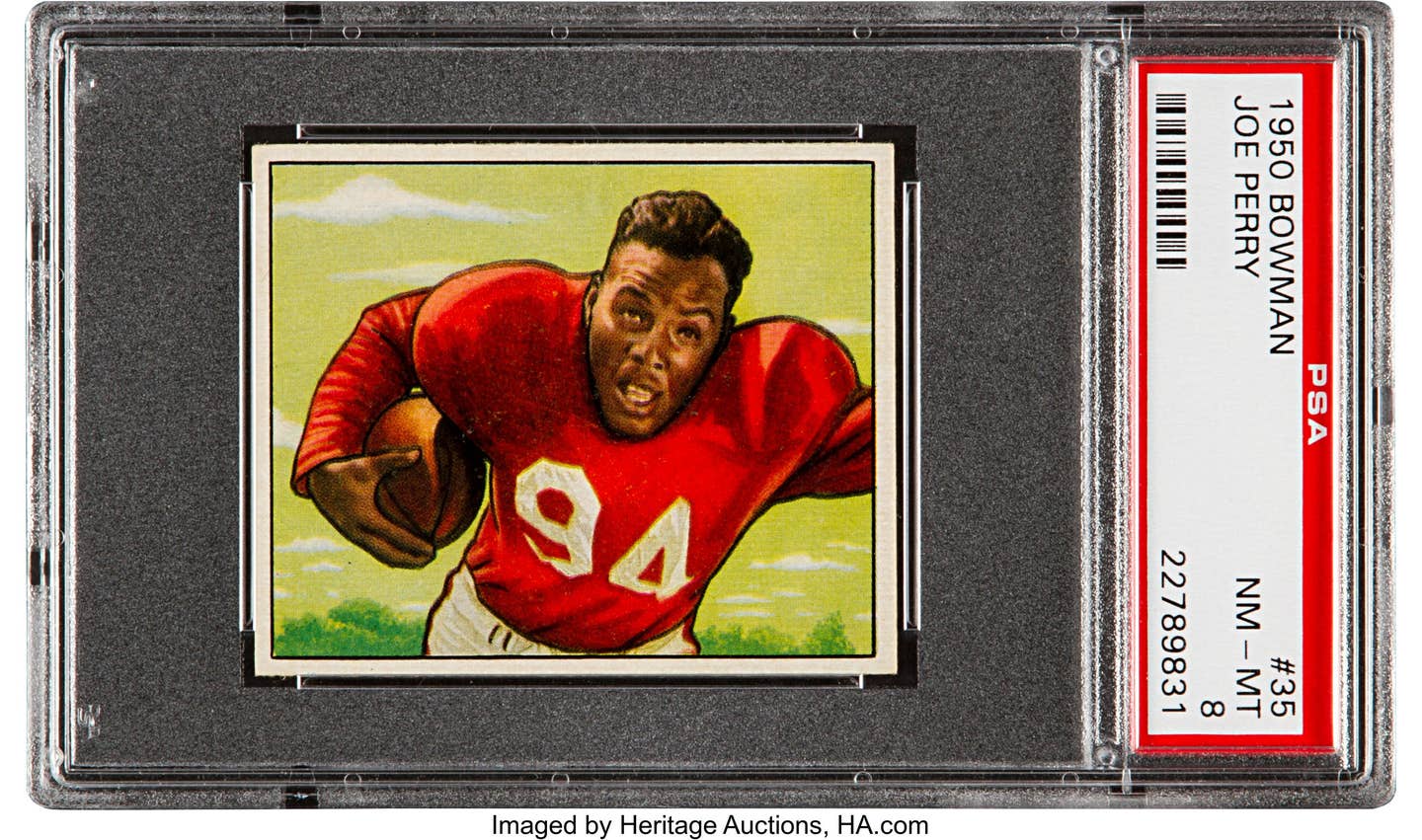
News
1950 Bowman Football cards tell stories of unique players from special era of pro football
One led nine D-Day landings at Normandy in decisive battles of World War II.
A second had offseason jobs as a singer, disc jockey and master of ceremonies.
Another lettered in five different sports in high school.
And another averaged an amazing 6.18 yards every time he ran with the ball.
Those are the kinds of fun facts about pro football players collectors can find on the backs of Bowman's 1950 football cards.
The set's card fronts are dominated by colorized player photos, but it's the backs of the cards that provide a unique look at a special era in the development of pro football and in America's culture 71 years ago.
World War II had a tremendous impact on pro football, as it did on so many aspects of American life and culture.
On card number 64, which pictures Redskins' center Al DeMao, the narrative mentions that he served four years in the Navy and rose to the rank of lieutenant as he skippered a landing craft on many dangerous missions on that fateful war-time day. A star at Duquesne, he joined the Redskins after the war and played eight seasons in Washington.
Bears' end Ken Kavanaugh, on card 137, flew many combat missions with the Army Air Corps and was decorated for bravery.
Browns' guard Alex Agase (card #7) served with the Marines and led his unit through the bloody battle of Okinawa. Rams' tackle Dick Huffman (#53) also served in the Marines and saw action at Saipan, Tinian and the Northern Marianas. Yanks' halfback Joe Golding (#12) earned the Silver Star, Bronze Star, Purple Heart and a battlefield commission during four years at war.
Players' offseason jobs were many and varied back when pro football salaries were modest at best. Like most athletes of that era, Eagles' halfback Bosh Pritchard needed offseason work to supplement his football salary in a pro league still in its early development. The Virginia Military grad, as card #25 explains, earned extra money as a singer, disc jockey and television master of ceremonies.
Star quarterback Sammy Baugh, a Redskins Hall of Famer (card #100), competed in rodeos during the offseason. Earlier he had turned down a baseball contract offer from the St. Louis Cardinals.
Redskins' guard Joe Tereshinski (#139) sold cars and umpired baseball games. Eagles' guard Walter Barnes (nickname “Piggy” on card #61) was in the real estate business and was also a talented caricaturist.
Card #108 pictures Verl Lillywhite, a 49er fullback who was called “the greatest all-purpose back in pro football” by his coach Buck Shaw. And Bowman's researchers discovered that the Southern California star also was so versatile that in high school he earned letters not only in football but also in baseball, basketball, tennis and track.
The back of Joe Muha's card (#133) reveals that the Eagles' fullback and punter held the then-record for the longest punt of 69 yards in an NFL title game and also for the shortest of 4 yards.
Joe Perry, the 49ers' fullback (#35), raced 45 yards for a touchdown the first time he carried the ball as a pro. Yanks' end Sam Tamburro (a 195-pound receiver on card #49) collected stamps as a hobby.
The Bowman series features two sets of brothers. The Ramsey brothers are Buster (a Cardinals' guard on card #92) and Knox (a 49ers' guard on the set's final card, #144). The Poole brothers, both Ole Miss grads, are Ray (a Giants' end on card #32) and Barney (a Yanks' end #84). There could have been a third set. Eagles' tackle Al Wistert's card (#59) mentions that he was one of three brothers who were All-Americans at Michigan. The other two — Whitey and Alvin — didn't play pro football, though the former played pro baseball very briefly (three games) as a pitcher with the Cincinnati Reds.
Despite all the info Bowman researchers found and delivered, some of the cards have glaring omissions. For example, card #14 details Yanks' halfback George Taliaferro's outstanding college career at Indiana and his great rookie year in what was then the All-America Football Conference. What isn't mentioned is that Taliaferro earned a special place in pro football history as the first black player drafted by an NFL team.
Also, the card (#17) picturing Rams' quarterback Bob Waterfield doesn't mention that he was married to movie sex symbol Jane Russell, star of the controversial 1945 Howard Hughes film “The Outlaw.” However, Bowman did mention the star-studded union on Waterfield's card in the gum company's 1948 football set (#24).
Two other cards deserve special mention.
Card #70 pictures San Francisco end Paul Salata. He was an honorable mention All-American at Southern Cal, served in the Air Force and, in 1948, led the Pacific Coast League in pass receiving. What Bowman couldn't have predicted in 1950 was that he would become a founder of the Mr. Irrelevant Award, which honors the final player chosen in the annual NFL draft. That accomplishment certainly has had lasting impact.
And card #130 pictures a Chicago Cardinals' end named Thomas Wham. He captained his football teams in high school and at Furman University, served three years in the Navy and had a good rookie year in 1949. He even set a prep school record in the shot put. But his name – WHAM!! — alone is enough to make him a memorable football player. You can almost hear Howard Cosell or some other excited broadcaster telling his TV audience that an opposing quarterback was sacked by WHAM!



